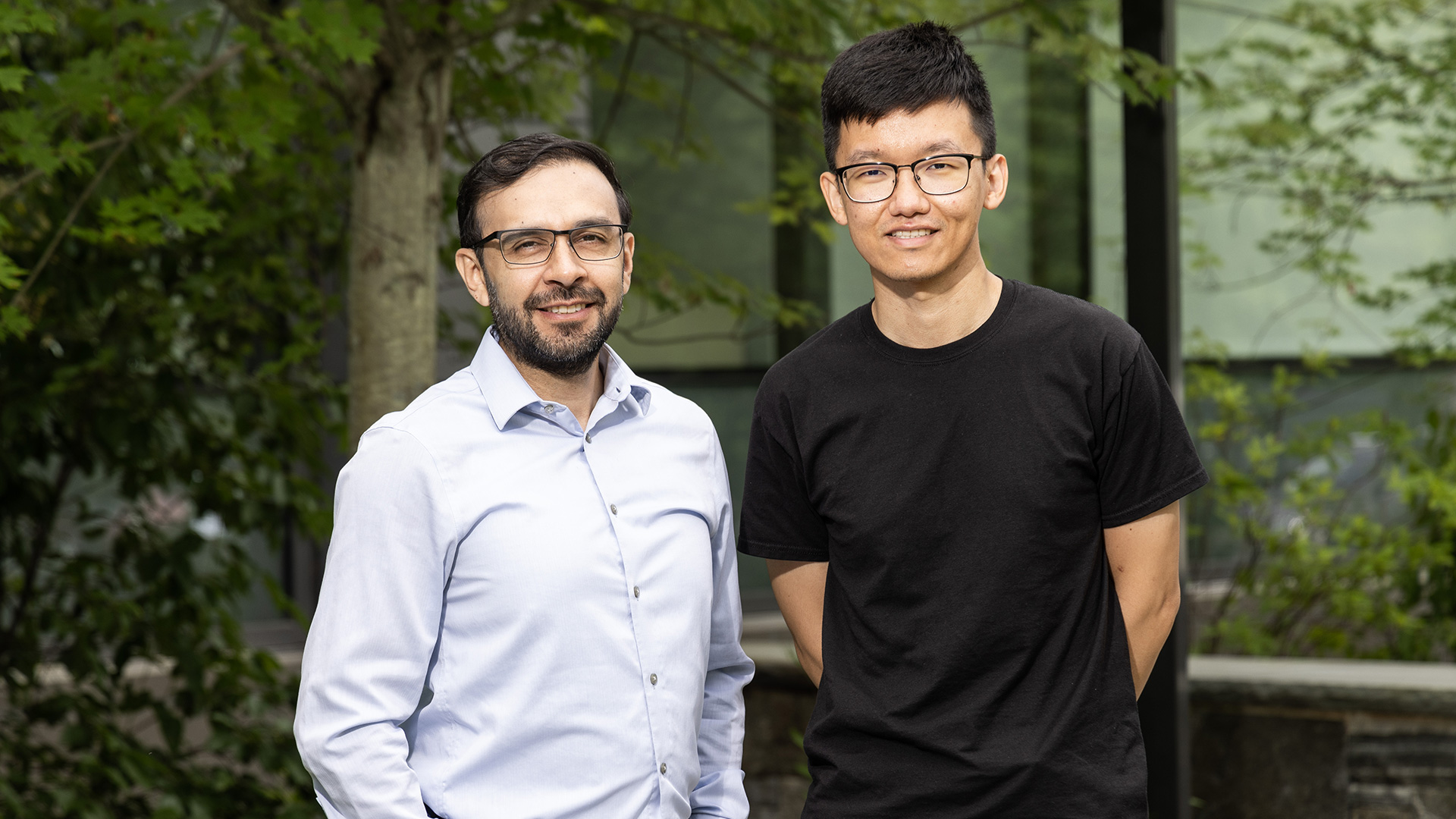
Reflecting the strength of his interdisciplinary training, Ze Zhang, a PhD candidate in the Graduate Program in Quantitative Biomedical Sciences (QBS) and the Department of Epidemiology at Geisel, recently earned second prize for Outstanding Graduate Research in Computational Science in the Neukom Institute’s 2022 Research Awards.
In the following Q & A, Zhang and mentor Lucas Salas, MD, PhD, MPH, an assistant professor of epidemiology at Geisel, discuss Zhang’s innovative project, conducted in the Salas Lab, and its potential to help advance tumor cell research efforts in the future.
Q: For starters, and to provide some context, Lucas can you describe what your lab focuses on and Ze what your research interests are?
Salas: Broadly, we investigate how cell heterogeneity impacts human health and disease, with an emphasis on how genetic, environmental, and lifestyle factors model the human epigenome. More specifically, we study how some key epigenetic mechanisms affect gene expression and cancer outcomes, including how the immune cells are altered in disease.
Zhang: My research interests are in molecular epidemiology, specifically epigenetics in cancer, developmental biology, immunology, and cell heterogeneity. My aim is to combine my skills and knowledge in medicine, biology, epidemiology, and bioinformatics to develop biomarkers for the improvement of population health.
Q: Can you tell us about your project, the problem you were addressing, and the results you were able to achieve?
Zhang: We do a lot of bioinformatics in our lab, analyzing data sets generated here at the Dartmouth biorepository and from publicly available sources like the Cancer Genome Atlas. In this project, we used a biological process called DNA methylation, which is an epigenetic phenomenon that regulates gene expression, to infer cell composition in the tumor microenvironment. This is challenging because the tumor microenvironment is highly complex and heterogeneous within and across tumor types.
The traditional method we and other researchers usually use for deconvolution involves generating one library that contains all the different cell types. It doesn’t work that well because it lacks specificity and accuracy when trying to develop specific profiles of cells in the tumor microenvironment.
What made our approach novel was that we developed a hierarchical algorithm that enabled us to employ multiple libraries for the targeted tumor microenvironment. This gave us higher accuracy, specificity, and resolution in analyzing the cell types and their components. As a result, we were able to estimate the proportions of 17 different cell types from three major tumor microenvironment components—tumor, angiogenic, and immune—for 20 carcinoma types.
Q: How do you see this innovation contributing to future studies and the work of your lab?
Zhang: We believe that, with higher resolution in cell composition profiling and a better understanding of what’s happening within the tumor microenvironment, there will be some biomarkers that we’re excited to develop that could potentially help evaluate patients’ responses to treatments such as immunotherapy and chemotherapy.
Salas: Ze’s work is a key part of our lab’s emphasis on trying to bring more prognostic markers for patients with cancer, in particular renal cell carcinomas. This method promises new avenues for the study of the tumor microenvironment, which we hope can provide new opportunities to help improve clinical decision-making and even to help develop new therapies for patients.
Q: What do you appreciate most about working in the Dartmouth environment?
Zhang: One of my main goals as a student is to receive interdisciplinary training, and learning from different departments across Dartmouth is something that is highly encouraged and supported here. I think receiving a computational science award speaks to how important it is that I have all the tools in my toolbox that I’m developing here as a PhD student.